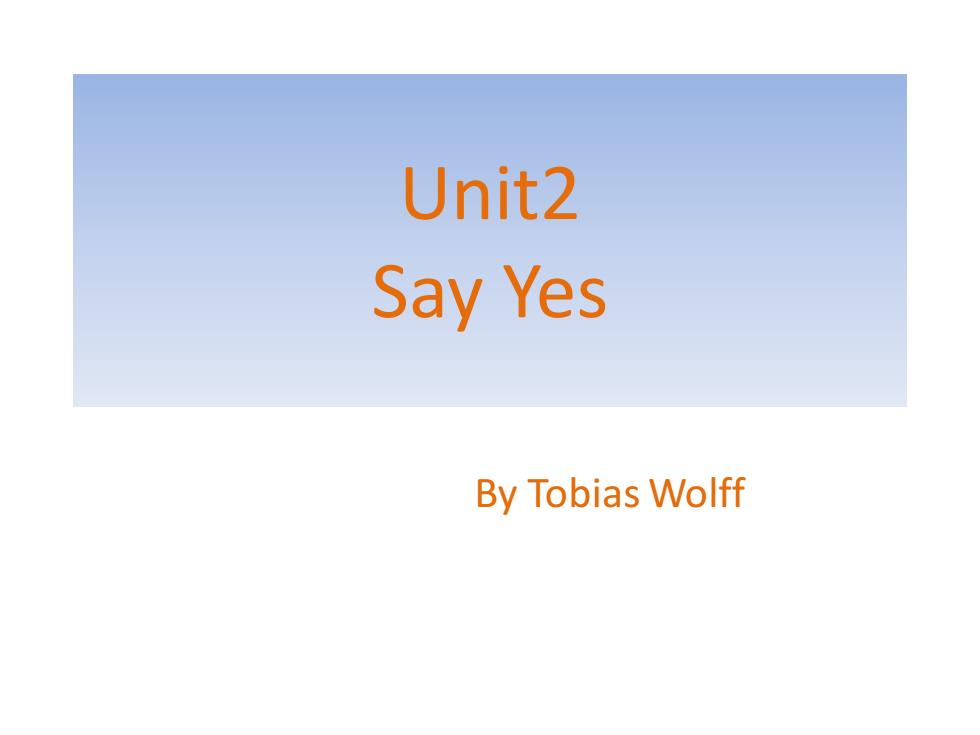
Unit2Say YesBy Tobias Wolff
Unit2 Say Yes By Tobias Wolff
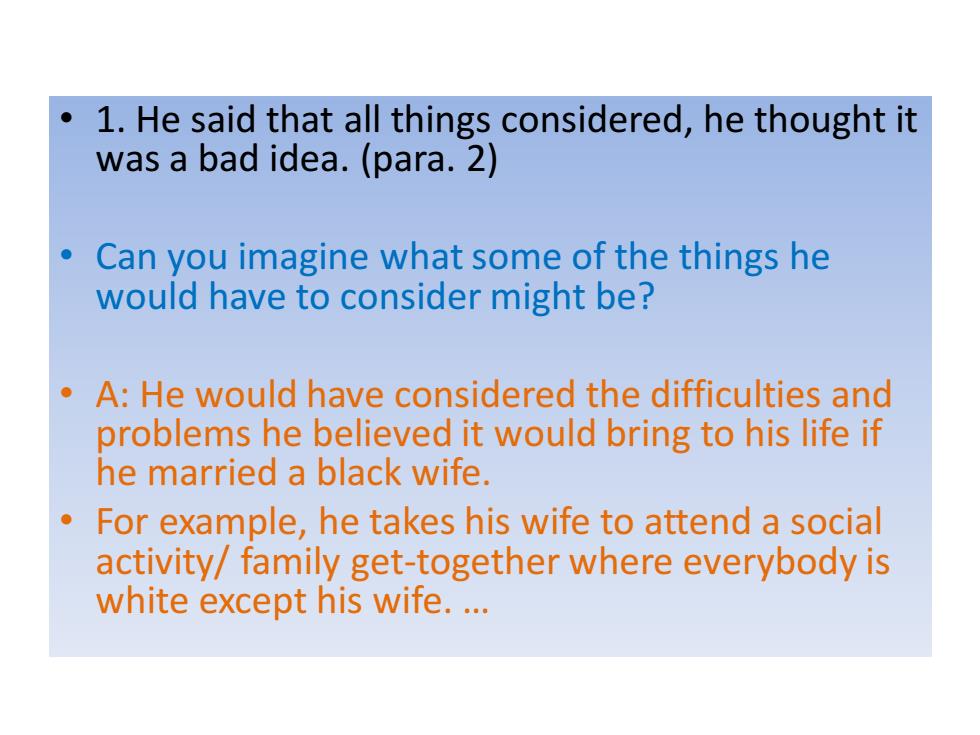
1.He said that all things considered,he thought itwasabadidea.(para.2)Can you imagine what some of the things hewould haveto consider might be?A:Hewouldhaveconsideredthe difficultiesandproblems he believed it would bring to his life ifhemarrieda blackwifeForexample,hetakeshiswifeto attendasocialactivitylfamilyget-togetherwhereeverybodyiswhiteexcepthis.wife
• 1. He said that all things considered, he thought it was a bad idea. (para. 2) • Can you imagine what some of the things he would have to consider might be? • A: He would have considered the difficulties and problems he believed it would bring to his life if he married a black wife. • For example, he takes his wife to attend a social activity/ family get-together where everybody is white except his wife.
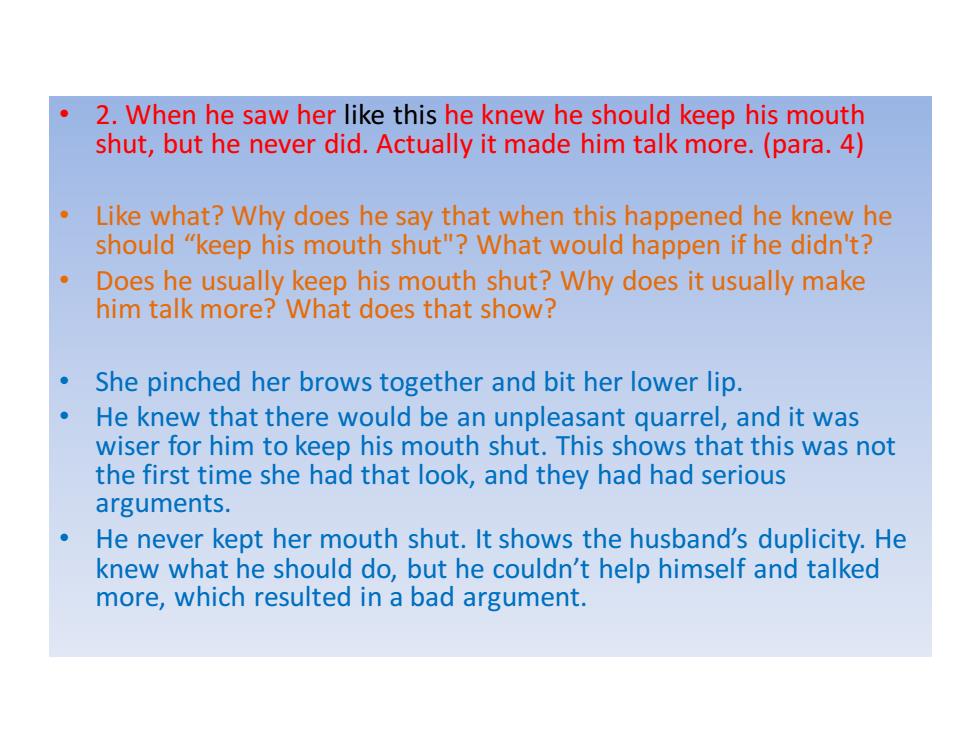
2.When he saw her like thishe knew he should keep hismouthshut, but he never did.Actually it made him talk more. (para.4)Like what?Why does he saythatwhen thishappened he knew heshould "keep his mouth shut? What would happen if he didn't?Does he usuallykeep hismouth shut? Why does itusuallymakehimtalkmore?Whatdoesthatshow?Shepinched her brows together and bitherlower lipHe knew thatthere would be an unpleasant quarrel,and it waswiserforhim tokeephismouth shut.This showsthatthiswasnotthe first time she had that look,and they had had seriousarguments.He neverkept her mouth shut.It shows the husband's duplicity.Heknewwhatheshoulddo,buthecouldn'thelphimself andtalkedmore,whichresulted inabad argument
• 2. When he saw her like this he knew he should keep his mouth shut, but he never did. Actually it made him talk more. (para. 4) • Like what? Why does he say that when this happened he knew he should “keep his mouth shut"? What would happen if he didn't? • Does he usually keep his mouth shut? Why does it usually make him talk more? What does that show? • She pinched her brows together and bit her lower lip. • He knew that there would be an unpleasant quarrel, and it was wiser for him to keep his mouth shut. This shows that this was not the first time she had that look, and they had had serious arguments. • He never kept her mouth shut. It shows the husband’s duplicity. He knew what he should do, but he couldn’t help himself and talked more, which resulted in a bad argument
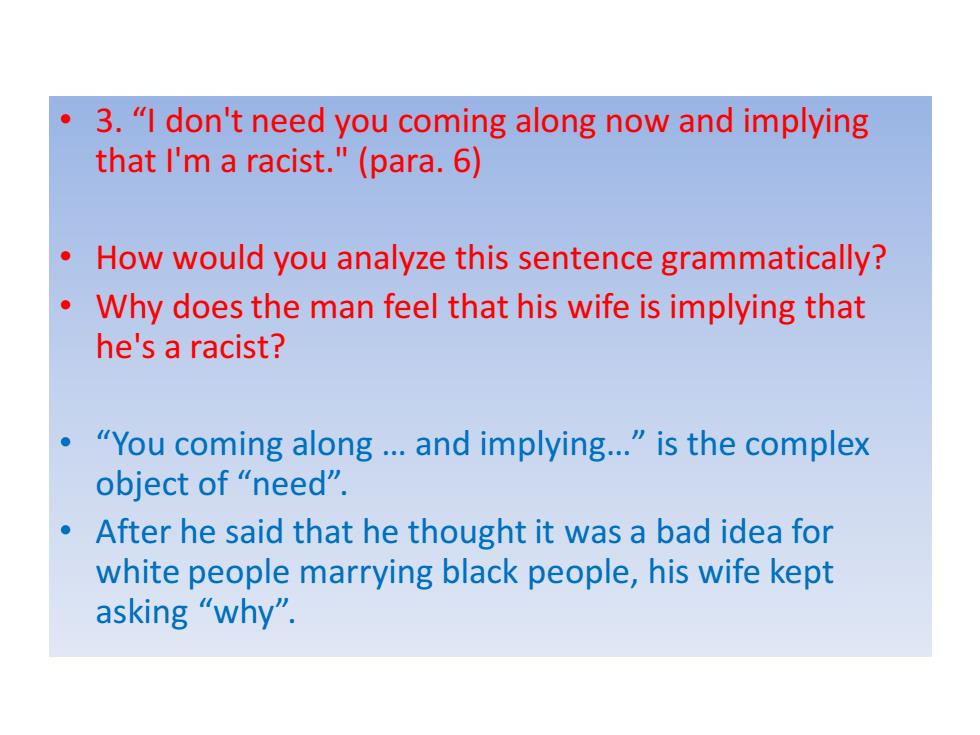
3."Idon't need you coming along now and implyingthatI'maracist."(para.6)How would you analyzethis sentencegrammatically?Whydoes the manfeel thathiswifeisimplying thathe'saracist?"You coming along ... and implying..." is the complexobjectof"need".Afterhe said that he thought it wasa bad idea forwhitepeoplemarryingblackpeople,hiswifekeptasking"why
• 3. “I don't need you coming along now and implying that I'm a racist." (para. 6) • How would you analyze this sentence grammatically? • Why does the man feel that his wife is implying that he's a racist? • “You coming along . and implying.” is the complex object of “need”. • After he said that he thought it was a bad idea for white people marrying black people, his wife kept asking “why
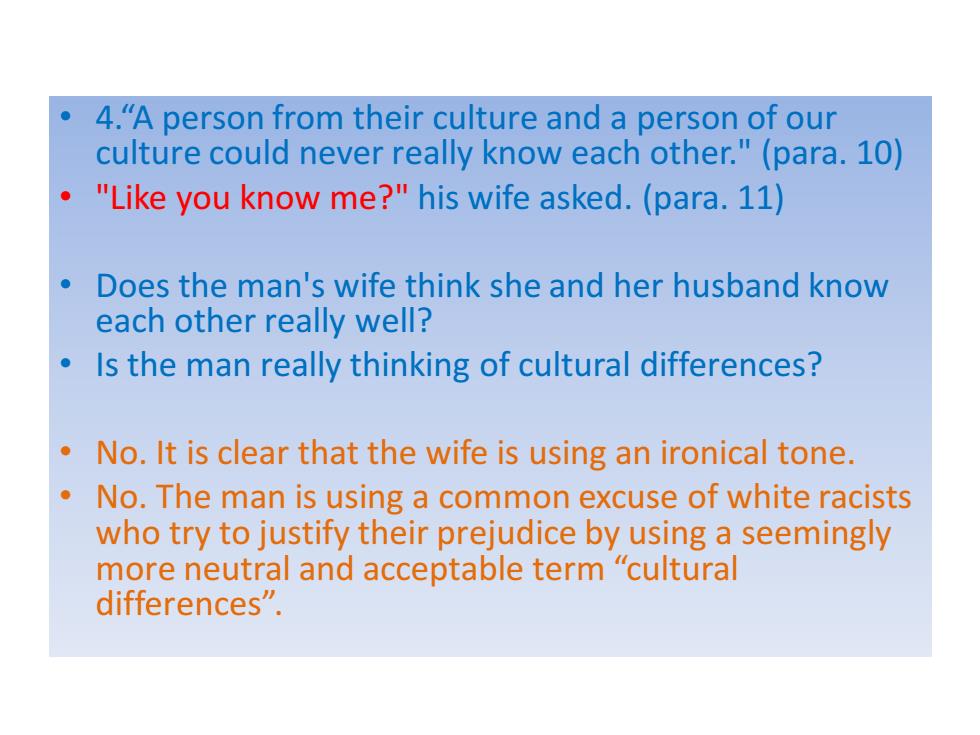
4."Apersonfromtheircultureandapersonofourculturecouldneverreallyknow eachother."(para.1)"Likeyouknowme?"hiswifeasked.(para.11)Doestheman'swifethinksheandherhusbandknoweachotherreallywell?Isthe man reallythinkingof cultural differences?No.lt is clearthatthe wifeis usingan ironical toneNo.Themanisusingacommonexcuseof whiteracistswho tryto justifytheirprejudice byusing a seeminglymoreneutralandacceptableterm“culturaldifferences
• 4.“A person from their culture and a person of our culture could never really know each other." (para. 10) • "Like you know me?" his wife asked. (para. 11) • Does the man's wife think she and her husband know each other really well? • Is the man really thinking of cultural differences? • No. It is clear that the wife is using an ironical tone. • No. The man is using a common excuse of white racists who try to justify their prejudice by using a seemingly more neutral and acceptable term “cultural differences